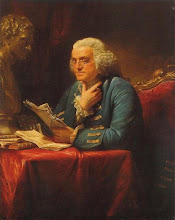 For me the beginning was in 1983 and the release of the Atari 800XL home computer. At the time I was working at Vincennes University and had had access to a main frame computer with teletype stile terminals. It had no chess programs and the Internet was just a baby. Connecting only a few universities and libraries. The Atari 800XL however had a monitor, floppy disk drive, and loadable programs that included. A word processor, a database and at least two available chess programs. (Sargon, Chessmaster)
For me the beginning was in 1983 and the release of the Atari 800XL home computer. At the time I was working at Vincennes University and had had access to a main frame computer with teletype stile terminals. It had no chess programs and the Internet was just a baby. Connecting only a few universities and libraries. The Atari 800XL however had a monitor, floppy disk drive, and loadable programs that included. A word processor, a database and at least two available chess programs. (Sargon, Chessmaster)At the time I was still playing in over the board chess tournaments and was the faculty sponsor of the universities chess club. As I began to play more correspondences chess I saw the potential of keeping these games organized in the meager database capabilities of these early chess programs. The chess engines themselves where not yet a factor in correspondents chess as they lacked the strength to be of any help in positional analyses.
I suppose, I did not foresee in those early days that programs using minimax algorithms (decision making equations in a zero sum games) would ever be strong enough to challenge the best human players. I believed the way to go was vast databases of games that would be searched for the winning move in any given position. In the early 80s CPU power and data storage were expanding exponentially.
Even on the Atari 800XLs 64K floppy disk many hundreds of games could be stored. I spent hours entering GM games mostly from the Chess Informant that I subscribed to. These key GM games in the lines that I played in correspondence chess were invaluable in getting my postal (as we called it back then) ELO above 2100 and keep it there for many years.
I smile now when I think of those days. My entire collection of games where no more than 900Kb in size. Today in modern engine vs. engine play I use opening books that are 200-300Mb and end game table bases that are 150Gb in size. It is still not enough, perhaps it never will be.




No comments:
Post a Comment